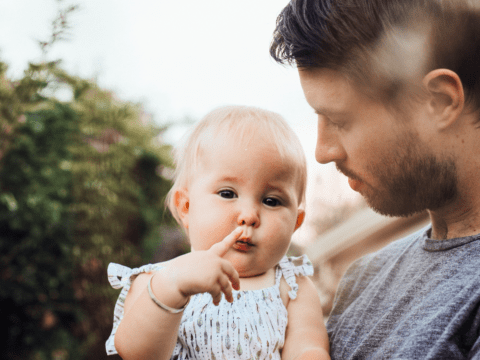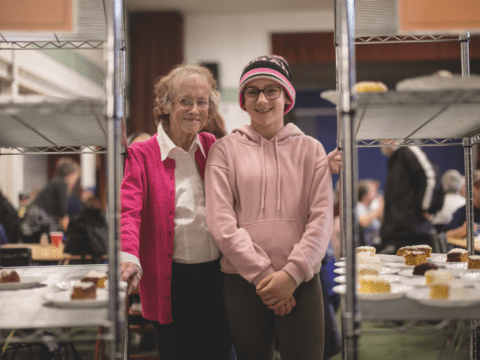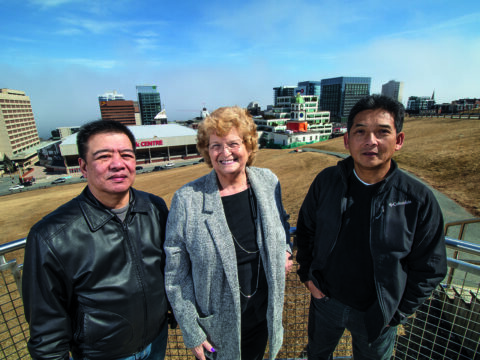Rabbi Elizabeth Bolton serves the Jewish congregation of Or Haneshamah in Ottawa. Before she followed her rabbinical calling, she was an opera singer who once performed for Prince Charles and the late Princess Diana. She spoke with Broadview about why activism, feminism and religion work so seamlessly together.
Caroline O’Neill: What was your journey to your current position?
You may unsubscribe from any of our newsletters at any time.
Rabbi Elizabeth Bolton: I didn’t decide on this path until my 30s. When I investigated cantorial school, it unearthed this notion that I could combine activism, music, feminism and queer consciousness. I made a very conscious decision to serve my [Reconstructionist] denomination. In part because [my] Reconstructionist rabbinical college was the first Jewish training entity to accept and graduate queer candidates.
In 2013, this [Ottawa] community decides they want a resident rabbi, and after 23 years or so living in the States, I was ready to head back to Canada. That I was the first Jewish woman clergy in the city is pretty astonishing.
CO: And are you also not the first openly lesbian clergy in the city as well?
RB: Absolutely. For our reconstructionist movement, it was not a big deal. It’s like, “You are a rabbi, and you fit our needs and you have the skills and we could really do community together.”
CO: What do you say to the people who think that activism, religion and feminism don’t go together?
RB: Read the Gospels. It’s pretty much right there. I believe that the Church was founded on some incredibly profound principles related to social justice. Jesus, as a teacher, certainly drew on the prophetic voices from what Christians call the Old Testament and that thread runs through the development of the Jewish liturgy. In daily prayers, we speak of the divine as someone who lifts up the fallen and feeds the hungry.
CO: A lot of people have a hard time with the word feminism and what it means. How do you address it with people who struggle with the term?
RB: With any kind of struggle about something that’s new-ish, I might take a pastoral approach. There might be some emotional undercurrent. A story. A narrative. In a public or a learning context, I might just sort of spell out certain fundamental values that I believe would undergird this being an important thing for the planet. If one-half of the world’s population doesn’t have full capacity to contribute to the economy — to be creators and makers and to nurture their spirits so that others can be nurtured — then all of humanity will suffer.
CO: You are a published writer yourself. I read a column you wrote about your neighbour Carolyn, which was really about finding common ground despite differences. What is your advice for finding common ground in polarizing times?
RB: For me, this is very much rooted in Genesis 1:27 — that all are created in the image of the divine. In Hebrew that phrase is selem elohiym. I see the image of the divine all around. Then I know there is a channel for us to come together to find common cause.
This interview has been condensed and edited.
This interview was originally featured in Broadview’s June 2019 edition with the title “Rabbi Elizabeth Bolton.” For more of Broadview’s award-winning content, subscribe to the magazine today.














Although not surprised, I find it interesting that there are female/gay Rabbis. The Tanakh is clearer than the Christian Scriptures on leadership roles. But such as it is.
To state that Jesus became divine because of activism and social justice is quite a bit of a stretch if you read the Gospels.
Jesus never stated the Government was responsible for social justice, it needed to come out of our own pockets (Christians for Christians) (Acts 2)
Jesus claimed he was Divine and proved He was Divine through “social justice” miracles (feeding 4,000 or 5,000). The social justice Christ performed came with a cost – usually “Follow Me” or “Sin no more”. John 6 shows what the most of His followers thought of the cost.
Finally – “If one-half of the world’s population doesn’t have full capacity to contribute to the economy — to be creators and makers and to nurture their spirits so that others can be nurtured — then all of humanity will suffer”. Funny, it seemed to work for the previous 5,000 years of Judaism and 2,000 years of Christianity.